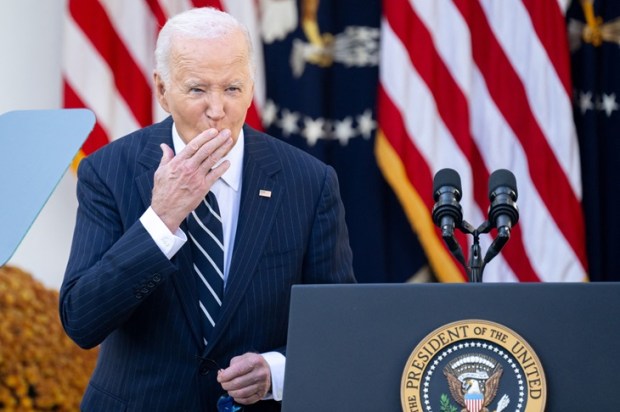Several chapters into a new science fiction novel, it became apparent I’d picked up another communist allegory disguised as entertainment.
Not my favourite.
The cast is trapped in a disintegrating spaceship adrift within a parallel dimension. Over thousands of years, knowledge of the original catastrophe has been lost to myth and the descendants of the crew find themselves living a vicious existence.
It is a civilisation of decay, grasping at ghosts. Remind you of anything?
Survival dominates these poor buggers and their short lives. Society has split out of necessity, forming class structures built around preserving the ship, coveting knowledge, and harvesting raw materials. People are defined by their duty.
I dog-eared the following:
‘…the enslaving of knowledge had another adverse effect … turning facts into precious things made them seem sacred, immutable…’
The rest of the plot is lashed together with an awkward love story, ticking clock, and Lovecraftian horror.
Unfortunately ‘communism’ gives away the ending.
In fiction, as in life, when civilisation commits itself to this political structure, it is destined to cycle through militarisation and corrosion. Communism consumes. Resources diminish. Impenetrable regulations suffocate hope. Born a worker, die a worker. Finally, someone – somewhere – stages a revolution.
There’s enough of this depressing tedium in the world to deter me from seeking it out in my leisure, but I don’t blame the author for circling communism as a plot device. Descent into collectivism is a predictable – though not mandatory – course for a civilisation in distress. Frightened people crave structure. Structure builds order. Order can momentarily restore peace. At a pinch, a totalitarian rule can be useful, but ‘order’ is particularly bad at solving problems. As they say, a stagnant pond quickly festers.
The remaining two-thirds of the novel led me to consider an interesting truth that was more apparent in the barbarity of its space setting: collectivism, as a political structure, requires an existential threat to feed on.
A free, powerful, prosperous, and safe society that is comfortable in its surroundings would never hand itself over to a centralised authority.
Small government, capitalist democracies grant the political class enough power to maintain the fabric of society, but care is taken to cut leaders off at the knees in swift electoral cycles. While the system protects against the vanity of politicians, it overlooks the ego of the Party. The natural solution to a Party wishing to rule forever has seen the soft duopoly of our system spiralling toward a uni-party of self-interested members who, by mimicking each other’s policies, have devised a way to steer society in a direction that benefits their corporate interests without reference to the people.
Democracy only works in a state of conflict.
This slow death of liberty has been noticed wafting through the halls of Parliament. Citizens are looking toward minor parties to unseat the rotting seat-warmers. There are even a few honest Ministers and Senators from the major parties agitating in the press, wishing for the situation to improve.
Killing off the few frogs trying to scramble out of the boiling pot has presented a problem to the comfy majority of political leaders.
To properly ‘conquer’ civilisation, a threat must be introduced to convince people to act irrationally.
The threat does not need to be real, but it must appear existential in nature. Staring into the abyss of extinction plays on our religious coding – the fear every conscious creature has of death once it realises what it means to be alive. It is this fear of destruction that herds individuals around the advertised ‘power’ of the State, or a religious leader – or both – depending on what sort of collectivism is hunting you. Communism’s dictators envision themselves as living deities. Then there is the necrocracy of North Korea where its political gods are worshipped after death.
In the case of the novel, the urgency of space eating away at the ship, exposing the crew to an inhospitable vacuum, is re-enforced by limited resources mined by a slave class who are ‘protected’ by the ‘hard-working’ officer and science classes. All classes are advertised as ‘equals’ – as ‘slaves to survival’ – but the officers eat and sleep on the ship while the rest are packed into workhouses or asteroid bases and left to die as nameless shreds of the whole.
It’s easy to see why a ship may turn on itself and enforce a ‘war economy’ footing to keep the nightmare of space at bay.
The old communist, socialist, fascist, and national socialist collectivists of last century tricked people using the threat of war. Boring but effective. The threat of invasion creates goose-stepping obedience and the spread of virtue that acts as its own form of currency.
This does not work so well on Western nations who won two world wars against collectivist forces.
What’s an aspiring Big State politician to do?
Covid served as an experiment on human behaviour. A flu that posed next to no threat to anyone under 90 convinced the West to shut their economies and cities down, lock themselves indoors, wrap themselves in PPE, and pray for a cure. People embraced extensions of government power, exulted politicians to saviours, accepted unheard-of violations of privacy, economic blackmail, medical coercion, experimental drug trials, state-sanctioned censorship, major disruptions to education, the destruction of thousands of private businesses, and reduction of human beings to ‘ticks’ and ‘crosses’. Those who refused to comply became a disease.
Why did leaders use wartime language to describe Covid? Why did press conferences frame this as an existential battle against an external foe that required ‘collective’ action to conquer?
These are not accidents of language.
Covid brought us two-thirds of the way toward collectivism.
We are vulnerable.
The next attempt is being made by globalism, better known as ‘re-branded international socialism’ which has co-opted environmentalism so it can spin the fear of ‘a climate apocalypse’.
Global Warming / Climate Change / Climate Crisis / Global Boiling – whatever name it chooses to go by this week – is the existential threat that permeates every government policy, corporate boardroom, education branch, and social forum. It is a colonising collectivist idea.
The West is told that ‘capitalism and democracy are not capable of saving the planet – we need top-down State control – a cohesive centralised plan’. Never mind that the worst polluters on Earth are communist nations.
To save the world, the West must adopt global centralised ‘green’ authorities and our domestic governments must expand their control over private industry. Individual citizens cannot be trusted to make ‘the right choices’ for the ‘greater good of the planet’.
If you don’t, you’ll die.
Trust the State, or you’ll die.
Give up your privacy, or you’ll die.
Fear of climate change is like the fear of space pressing down around us – invisible, intangible, and constant.
If we turn ourselves into the cliched sci-fi communist saga, we’ll end as my novel did: misery, revolution, death, and despair.
No one believes the world is going to end except the slaves. Don’t be a slave.

























